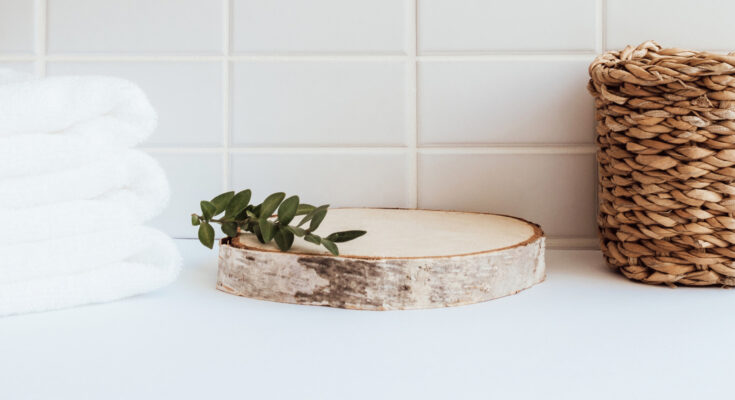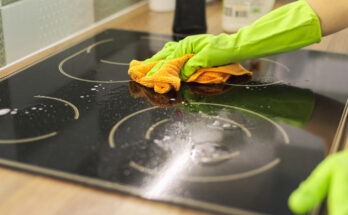The Best Bathroom Countertop Materials, According To HGTV’s Mike Holmes
Next to kitchens, bathrooms are typically the fastest-aging rooms in any home. Frequent wear (and, consequentially, frequent tear), paired with the expert spoiler that is high humidity makes it especially important to carefully pick the materials with which to build your bathroom. Vanities and their countertops are among the most vulnerable areas in this room, withstanding all kinds of splashes and stains from water, toothpaste, or beauty products. It’s also where people tend to place those products, even when they forget to properly seal or clean them — not to mention the damage caused by hair irons that are often left to cool down during busy morning or date night routines.
If you’re wondering how to choose the perfect bathroom vanity countertop, HGTV’s Mike Holmes has no doubts about his favorites: the ever-durable engineered quartz, the reliable granite, and the low-maintenance porcelain. Ever the champion of functionality, the “Holmes on Homes” frontman shared his suggestions for the best bathroom countertops, detailing pros and cons, as well as each option’s durability, style, and design flexibility.
Quartz and granite are the champions of countertops for a reason
Much like Mike Holmes, many homeowners opt for engineered quartz and granite countertops for their bathrooms and kitchens. They each have their particularities, but with costs running at similar values and pros and cons lists running at similar lengths, the choice is often down to personal preferences and priorities.
Although there are several details that differentiate engineered quartz from granite, Holmes knows which is the most important for the modern consumer: upkeep. “Engineered quartz is durable, strong and non-porous. It can mimic real stone and doesn’t require sealing. Granite is another great option but it does require maintenance and resealing,” he explained, per Make It Right. Because engineered quartz, like the name indicates, is not a natural stone and involves materials like resin in its manufacturing, it is non-porous and, therefore, will not absorb liquids nor will it stain. Granite, a stone made out of solidified lava and quarried directly from nature, is intrinsically porous and, without periodic sealing (the application of a protective coat) as frequently as once a year (depending on products used), it may stain. There is a simple test that tells you if it’s time to reseal your stone countertops and it only involves some water.
Still, this tried and true material has cemented its place in homes everywhere for a reason. Yes, worrying about resealing is annoying, but granite can withstand very high temperatures without burning, for instance. This will save you a pretty penny when you forget to put away that hot hair iron we were talking about earlier.
Choose porcelain for the best of both worlds
Mike Holmes is also a fan of porcelain in bathroom countertops. This dark horse material has gained widespread popularity since technology evolved to produce large-format slabs and, unlike the two previous options, there are little to no downsides in its use.
Porcelain shares many of the qualities that make engineered quartz a top pick in countertop design, with some additional pluses. It is similarly scratch and stain resistant without the need for sealing, making it as durable and low-maintenance as its counterpart. However, porcelain is, like granite, conceived at extremely hot temperatures, which means it’s virtually invulnerable to heat. It’s just as immune to UV radiation, too.
This marble countertop look-alike is also the most eco- and health- friendly of the three. Engineered quartz and granite can last you a lifetime if properly maintained, making them sustainable options in their own right. However, because it is made from a substance as easily accessible as clay, porcelain is remarkably nonviolent towards the planet. It’s also 100% recyclable. Holmes does warn that “porcelain tends to be more limited in design and color choices” and “lacks the depth that quartz has.” Even so, its pros vastly outweigh its cons in ways that neither granite nor engineered quartz seem able to challenge. We might have a winner.



